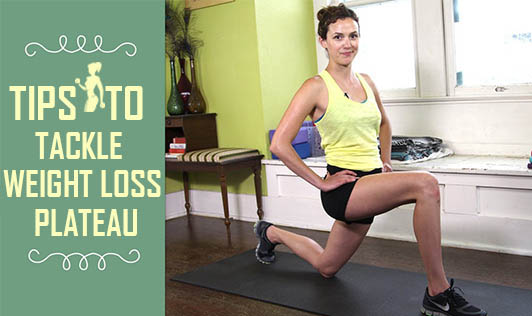Tips To Tackle Weight Loss Plateau
68 months ago

Almost everyone reaches a weight loss plateau at some point in their weight loss journey. After the initial weight loss, progress will slow down and eventually stop even though the exercise and food intake is consistent. The reason is that the human body is working hard to keep energy intake and output in balance.
Have you hit a plateau where the scale just seems to be stuck at the same number for weeks? Don't panic...it's a temporary situation. The best single word of advice during such times is to make a change. Don't make the mistake of doing the same thing over and over again expecting a different result. Don't give up!
Here are a few tips on how to tackle weight loss plateau:
- Be honest, don't cheat - If we don't monitor the eating habits closely, we fall back into old habits easily. Doing a strict self-monitoring will help point out the areas that need improvement and help to avoid cheating.
- Don't be too hard on yourself! - Make sure you don't deprive yourself of food, leading to binge eating. At times we "make up” for not eating our favorite foods by overindulging by giving in to the craving.
- Trick your body - Change your exercise routine.
- Join a sport - An active sport is a great way to change your routine. The key is to try something new to get the body into losing weight.
- Weight training - The more muscle mass you have the more calories your body will need to maintain it. This is very important and very effective. You may feel more hungry after a heavy weight lifting session; this is the body's response to supply the required calories to increase the muscle mass. Working your muscles will help to strengthen bone tissue, increase lean mass, and ultimately boost metabolic rate.
- Change meal frequency - Eat six small meals a day. Eating small portions throughout the day will help keep your metabolism going. This is sometimes useful in breaking weight-loss plateau.
- Track everything you eat - Tracking your calories and macronutrients intake can provide information about how much you're taking in. This will allow you to modify your diet if needed.
- Take a break - Don't get furious and disappointed when weight is not coming down. Some may have more adaptive bodies than others. Every person is unique, and must learn and know how our body responds - and how to work with it. Give the body and mind a break for few days, then start back with the exercise routine and diet.
- Manage Stress - Stress can often put brakes on weight loss. In addition to promoting comfort eating and triggering food cravings, it also increases body's production of cortisol which can increase belly fat storage.